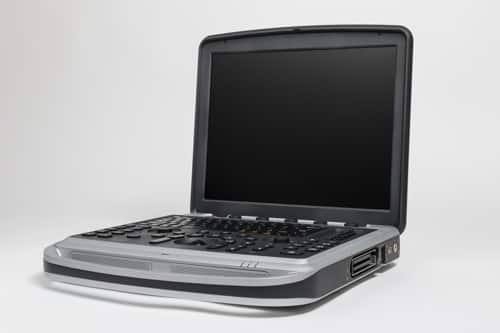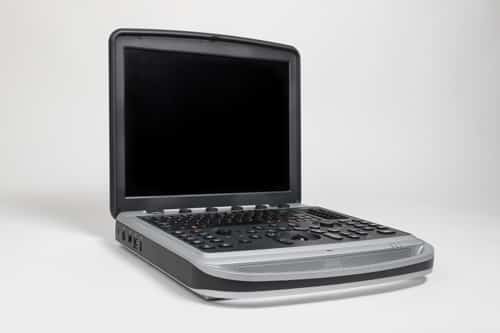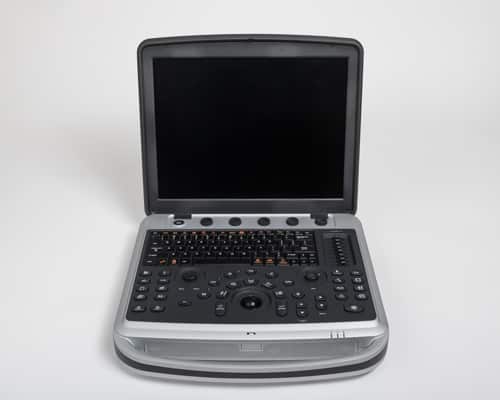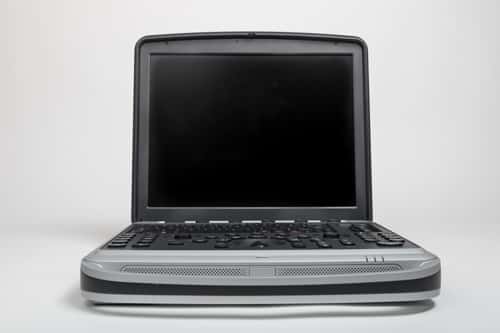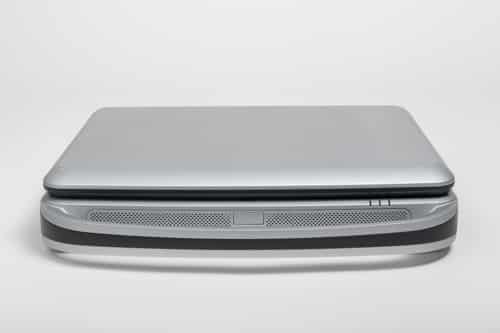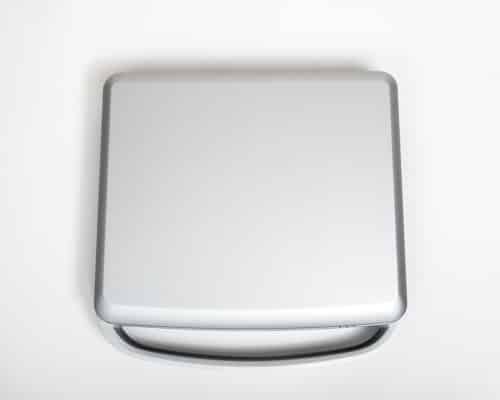The Chison SonoBook 9 ultrasound’s cardiac capabilities are among the best in this price range. Yet, this also excels at more than cardiac imaging. The vascular imaging performed by the SonoBook 9 is diagnostically advanced, and it has also been adopted by professional sports teams for use in their training facilities as an orthopedic/MSK ultrasound.
Image quality for the SonoBook 9 is optimized by using advanced technologies, including: compound imaging, needle visualization, speckle reduction imaging. Key unique features include IMT, Tissue Doppler, and prospective/retrospective cineloop saving. Additionally, it features some of the highest frame rates of any portable cardiovascular ultrasound machine.
With an internal Solid State hard drive (SSD), the SonoBook portable ultrasound machine is among the fastest machines we tested. Saving loops, changing modes, adjusting image quality, exporting, etc, are all nearly instantaneous. Most notable: there is almost no lag when saving cine clips, which is a key issue with most portable ultrasound machines.
Key notable features include:
- Fast boot up speeds (<1 minute)
- 4D OB Imaging with VirtualHD
- Transducer support for over 27 probes
- Instant switch between different ultrasound modes and measurements
- AIO (Automatic Image Optimization for B-Mode and D-Mode)
- Auto Measurements including Auto IMT, Auto NT, Auto-trace for PW and for follicles and breast lesions
Chison SonoBook 9’s durability and design is similar to Mindray and generally better than comparable portable ultrasound systems from GE’s Vivid and Logiq lines.
The SonoBook 9 price is less expensive than its closest competitors, which include the Mindray M9, Philips CX50, and GE Vivid iq. When compared to other affordable ultrasound machines, the SonoBook’s cardiac imaging was quite a bit better than the Chison EBit 60, Mindray M7, GE Logiq e, GE Vivid e, GE Vivid i, and SonoScape S8 Expert.

